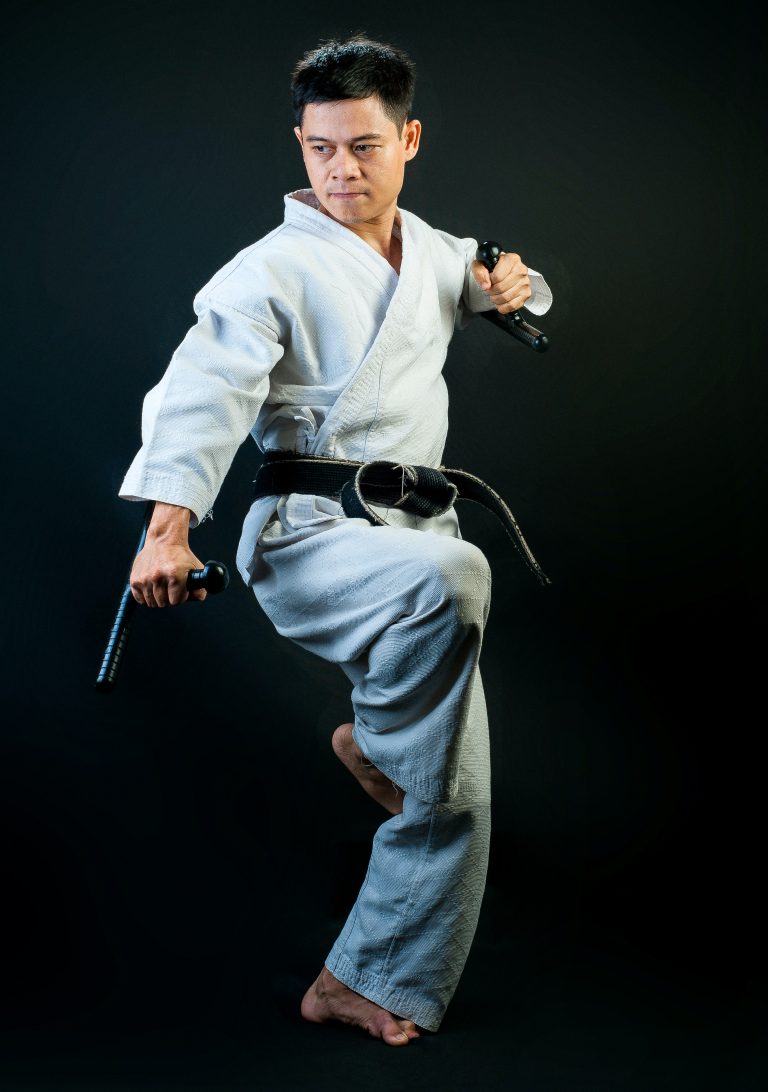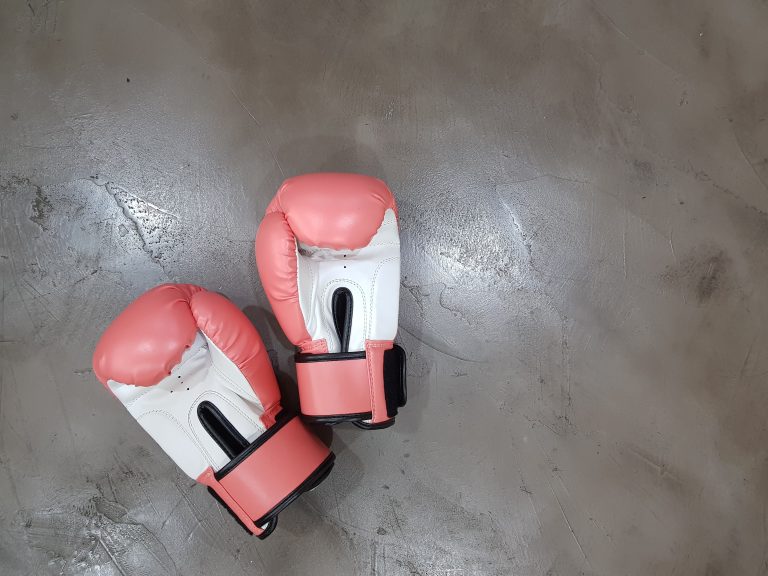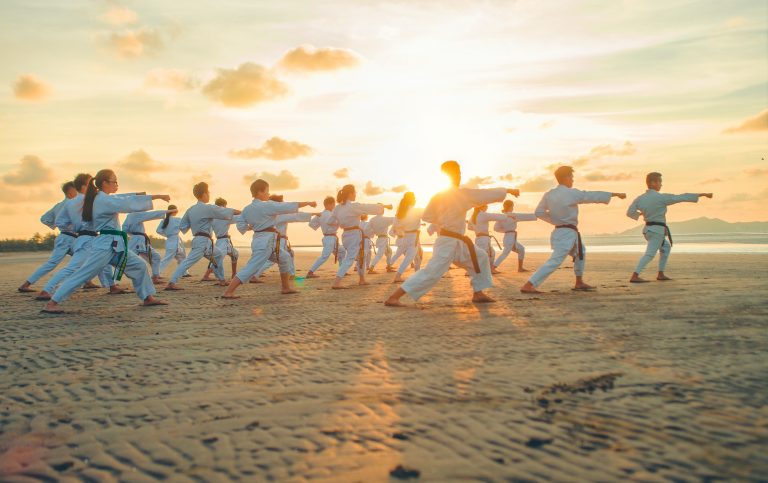How Do You Become a Karate Master?
Karate is an ancient martial art form that has been practiced for centuries. It’s not just about self-defense or physical fitness, but rather a discipline that requires mental focus and persistence. Becoming a karate master is not an easy task, but with dedication and hard work, it’s achievable.
If you’re interested in becoming a karate master, here are some essential steps you can follow to achieve your goal.
Step 1: Find a Good Karate School
The first step in becoming a karate master is finding a good karate school. Look for a school that has knowledgeable instructors with years of experience in teaching karate. You should also consider the number of students and the class schedule. A smaller class size provides more individualized attention, while a more extensive schedule accommodates your availability.
Step 2: Learn the Basics First
Before diving into complex karate moves, it’s essential first to learn the basics. It includes mastering the various stances, kicks, and punches. It is essential to have a strong foundation in karate. A good understanding of the basics will also help you avoid injuries when performing more advanced moves.
Step 3: Train Regularly
Karate requires consistency in training to master the form. Practice regularly, and be patient with yourself. Learning karate takes time, and it’s essential to stay motivated and keep training. Remember, even karate masters have to continue training to maintain their skill.
Step 4: Set Goals
Knowing what you want to achieve can give you a sense of purpose and motivation. Set achievable goals for yourself, such as mastering a particular technique, achieving a belt rank, or participating in a karate tournament.
Step 5: Seek Feedback
Feedback is essential in improving your karate form. Seek feedback from your instructor or other karate students. They can provide valuable insights into your strengths and weaknesses that you may not notice yourself. Using feedback, you can make improvements in your training program and move closer to mastering karate.
Step 6: Stay Committed and Dedicated
Lastly, becoming a karate master requires commitment and dedication. Consistently train, set goals, and seek feedback, but most importantly, maintain a positive attitude and stay committed to your journey.
In conclusion, becoming a karate master takes time, dedication, and hard work. It’s not only about physical fitness but also mental discipline. Follow these steps, and with patience and persistence, you, too, can become a karate master.
How Do You Become a Karate Master?
Karate is a popular martial art form that originated in Japan. It has become a common sport all around the world, with millions of people practicing and competing. Becoming a Karate master, however, requires time, effort, and patience. In this blog post, we will answer some of the most commonly asked questions about how to become a Karate master.
What is Karate?
Karate is a martial art form that involves a combination of punches, kicks, and strikes. It is often referred to as „the ultimate fighting art“ due to its emphasis on both physical and mental training. Karate is not just about fighting or self-defense; it is also about discipline, respect, and personal growth.
What is a Karate Master?
A Karate master is a person who has reached the highest level of proficiency in the art of Karate. They have years of experience under their belt and have achieved a high degree of skill, knowledge, and expertise. A Karate master has also demonstrated their commitment and dedication to the art and its principles.
How long does it take to become a Karate master?
The amount of time required to become a Karate master varies from person to person. It depends on various factors, including the individual’s talent, motivation, and dedication, the style of Karate they are practicing, and the level of training they are receiving. Generally, it takes around 10-15 years of rigorous training to become a Karate master.
What are the requirements to become a Karate master?
To become a Karate master, one must meet certain requirements. These include:
1. Consistent training – To become a Karate master, it is essential to have regular practice and training. Consistency is key in developing the necessary skills and techniques.
2. Dedication – Becoming a Karate master requires a tremendous amount of dedication, commitment, and patience. It is not something that can be achieved overnight.
3. Respect – Respect for the art, its principles, and others is a vital aspect of becoming a Karate master. One must learn to respect their teachers, their fellow students, and themselves.
4. Humility – It is essential to remain humble and open to learning throughout the Karate journey. There is always something new to learn or improve upon.
What are the benefits of becoming a Karate master?
There are several benefits of becoming a Karate master. These include:
1. Improved physical fitness – Karate training involves a lot of physical activity, which can help improve one’s fitness levels.
2. Increased self-discipline – Regular training and practice can instill self-discipline, which can be beneficial both in and out of the dojo.
3. Better focus and concentration – Karate involves a lot of mental focus and concentration, which can improve these skills over time.
4. Greater self-confidence – As one progresses in their Karate journey, they gain more confidence in their abilities and themselves.
What is the best age to start learning Karate?
Karate can be learned at any age, but it is generally recommended to start at a young age. This is because learning Karate at an early age can help develop good habits, discipline, and self-confidence. However, adults can also start learning Karate and still achieve a high level of proficiency.
What are the different styles of Karate?
There are several different styles of Karate, each with its unique techniques, principles, and training methods. Some of the most popular styles include:
1. Shotokan – A style known for its strong stances and powerful strikes.
2. Goju-Ryu – A style that emphasizes a combination of hard and soft techniques.
3. Shito-Ryu – A style that combines elements of both hard and soft techniques, with a focus on footwork and body control.
4. Wado-Ryu – A style that emphasizes fluid movements and evasion techniques.
5. Kyokushin – A style that emphasizes full-contact sparring and powerful strikes.
What is the grading system in Karate?
The grading system in Karate varies from style to style, but it generally involves a series of belts to indicate a student’s level of proficiency. The grading system typically starts with a white belt, followed by yellow, orange, green, blue, brown, and black. It can take several years to progress through the ranks, with each belt representing a higher level of skill and knowledge.
Conclusion
Becoming a Karate master requires time, dedication, and patience. It involves consistent training, discipline, respect, and humility. Karate is not just about fighting or self-defense; it is about personal growth and development. By understanding the requirements and benefits of becoming a Karate master, individuals can embark on a journey that can transform their lives both physically and mentally.
Inhaltsverzeichnis






